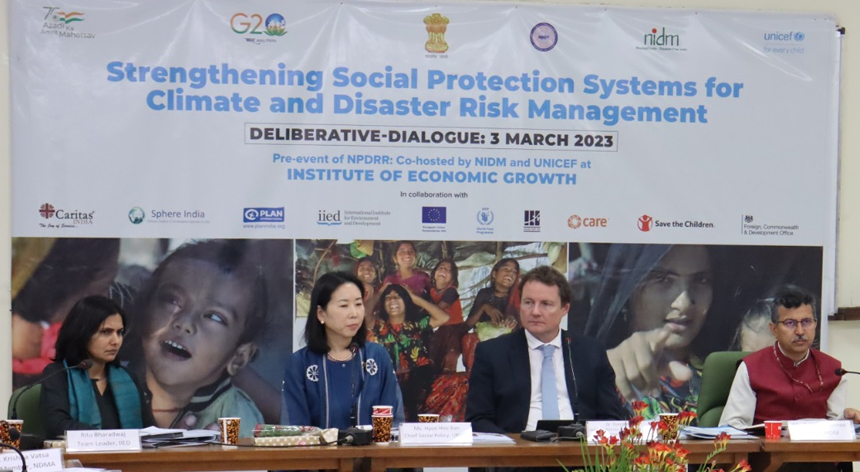National Platform for Disaster Risk Reduction (NPDRR) has been constituted by Government of India with an aim to develop a comprehensive Disaster Risk Reduction (DRR) apparatus at national and district level. To ease the integration of disaster management into developmental planning in many sectors and at all levels, from the national to the local, there is a need to establish an environment that is conducive to the creation of a culture of prevention and to enable concerted efforts.
India has been able to develop a comprehensive Disaster Risk Reduction (DRR) apparatus at the national, state, and district levels. In order to manage disaster risk, the institutional structure and legal framework are firmly established. As a cross-cutting development issue, DRR calls for political and legal commitment, scientific understanding, careful development planning, application of technology, law enforcement, community involvement, early warning systems, and effective disaster preparedness and response mechanisms.
By focusing the theme on “building Local capacities in a Changing Climate”, the 3rd session of the National Platform aims to bring together the whole range of India’s disaster risk community from Government, Parliamentarians, Mayors, Media, International Organizations, NGOs, local community representatives, scientific and academic institutions and corporate businesses etc. The event helps in sharing of experiences, views and ideas, present findings of research and action and explore opportunities for cooperation in the field of Disaster Risk Reduction. The output from the National Platform offers a strategic direction and a road map for the formulation of our future National Action Plans on DRR.

Caritas India has co-organised a side event on Strengthening Social Protection Systems for Climate and Disaster Management on G20 summit on 03 March 2023 at the Institute of Economic Growth, New Delhi. For this, in partnership with UNICEF, National Institute of Disaster Management and other Civil Society Organizations. The discussion were led under the leadership of Mr. Rajendra Ratnoo, ED, NIDM, Mr. Krishna Vats, Member, NDMA, Mr. Tom White, Chief, DRR and Emergency Response, UNICEF India.
The discussion centred on how to increase the resilience of individuals and groups at risk for disasters by funding social protection initiatives that will lessen their vulnerability to shocks and pressures. Mr. Anjan Bag, Thematic Lead – Humanitarian Aid and Disaster Risk Reduction of Caritas India highlighted different layers of vulnerability. In a large country like India, there are different levels of vulnerability.
“A person may have one or more kinds of vulnerability, a widow is vulnerable; a widow with an infant and no family member is the second level of vulnerability, and a widow with a child with a disability is another level of vulnerability,” said Mr Anjan. He emphasized having different social protection schemes for different levels of vulnerability. These schemes provide some kind of economic security; however, these social protection schemes cannot reduce the impact of the disaster on a person or a family. Disaster mitigation and disaster risk reduction are beyond social protection and more needs to be done to make a person or a family reduce their vulnerability and increase their capacity to deal with disaster situations. His remarks were supported by other presenters including UNICEF.

Caritas India exhibited the works carried out for community-based disaster risk reduction along with different knowledge products. Caritas India’s Global Program partner Bihar Water Development Society (BWDS) team presented a demonstration model of Lighting Arrester, a replicable and affordable – community-based disaster risk reduction model. The model was well appreciated by the participants.


Leave a Reply